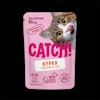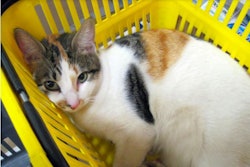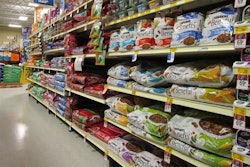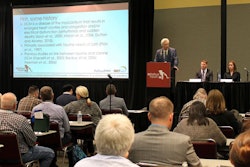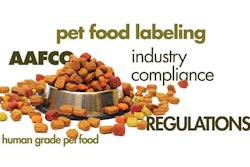
As much as humanization has benefited and spurred continual growth for pet food, I sometimes find myself shaking my head at how pet owners can apply some of their own eating preferences to their pets, no matter what. At the same time, it makes for great ironies.
For example, new data from Mintel show 43% of dog food buyers in the U.K. believe it is healthier to limit the amount of red meat eaten by pets, while 34% believe it is good for pets to “regularly have a plant-based meal rather than a meat-based one.” (This comes from a survey conducted in May 2019 of 2,000 internet users age 16 or more.)
“Our research finds that many pet owners are keen for their cats and dogs to adopt some of the alternative diet trends that are being embraced by humans,” said Emma Clifford, associate director of food and drink at Mintel.
Oh, where to start to unpack all that?
What does ‘plant based’ really mean?
First, the irony comes from the fact that this seems a reversal – or perhaps a natural cycling of the market – against the prevailing trend for several years of “feeding your dog as it would eat in the wild,” in other words as a carnivorous wolf that should have only high levels of meat. (This has been especially dominant in the U.S., but judging by the many high meat claims I saw at Interzoo the last two shows, it’s a trend in Europe, too.) Considering that trend was always based on internet tropes and marketing hype, rather than actual science, I suppose some measure of backing off it should be viewed as positive.
Yet that doesn’t necessarily mean a “plant-based meal” is good, either, because we don’t know how Mintel phrased the question in its survey or how respondents interpreted it. If they meant a complete and balanced vegan or vegetarian dog food formulated according to European Union guidelines (or, for a pet food from the U.S., following National Research Council guidelines and Association of American Feed Control Official definitions), then that’s fine. If they meant a plant-based meal similar to what people might eat, then no!
And of course, that is for dogs. Cats are obligate carnivores, meaning they must eat meat to obtain essential amino acids found only in animal tissue. Yes, the survey report mainly referenced dog food buyers, but it also included cat owners, which makes me nervous.
In fact, the whole thing makes me nervous because of this: According to the survey, 27% of U.K. dog owners said they cooked for their dogs or served them leftovers in 2019, up from 22% in 2018, while 21% of cats owners did so (up from 13% in 2018). It doesn’t help much that only 46% said they’re interested in guidance for making pet food at home. (That 32% said they would consider using meal kits to make pet food at home is a tad more comforting – again, as long as the kits are complete and balanced and properly formulated for the species.)
UK pet food market growth despite Brexit
Some of the human food trends people are trying to apply to their pets seem OK. For instance, digestive health is important to U.K. pet owners, according to Mintel, with 76% of survey respondents saying they believe that “actively looking after pets’ digestive health is essential for their overall health.” Another 44% believe that pet food with “good bacteria” (such as fermented foods) is also good for pets’ health.
In addition, this seems to be a committed pet-owning population, with 35% owning dogs, 29% owning cats and 60% overall owning some species of pet. And, the good news is that, despite all the uncertainty over Brexit, the pet food market in the UK has been growing to the tune of 16% since 2015, according to Mintel data. Volume growth has been lower, at 3%, indicating the level of premiumization and price inflation common to developed pet food markets. Mintel projects the UK market to reach about £2.9 billion (US$3.76 billion) in dog and cat food sales in 2020, up from £2.5 billion (US$3.24 billion) in 2015.
Laughing out loud
Yet some of the data in Mintel’s report just makes me laugh. To wit: 71% of the UK pet food buyers say a pet’s diet has a direct impact on its emotional well-being, and 42% consider their pets “foodies.” Do these people realize they’re talking about cats and dogs? The former just want (and need) something with meat in it, and the latter will eat just about anything, even their own poop in some cases. I’m sure neither is thinking about how trendy their food is or how it makes them feel – other than full.

